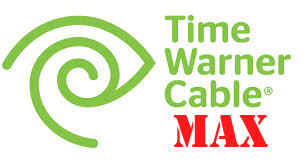
Phillip “I Want My Money Back” Dampier
For months, Time Warner Cable has deployed its legal team to prevent public interest groups from gaining access to the company’s exhibit of rural broadband buildout plans it had for New York, sent confidentially to the Public Service Commission as part of its proposal to merge with Comcast.
“This information would be difficult and costly for a competitor to compile, such that disclosure would significantly harm Time Warner Cable’s competitive advantage,” Time Warner Cable’s lawyers complained to regulators handling the case. “To allow competitors to have access to this information before Time Warner Cable has had a chance to market customers for which it speculatively built the line would not only negate any competitive advantage, it would allow its competitors to reap the benefits of Time Warner Cable’s investment, causing substantial competitive and financial injury to Time Warner Cable.”
“The compilation of information on all the Time Warner Cable New York deployments, distances, and passings into one document would be of enormous value to a competitor,” the lawyers added. “This information could not be developed independently by competitors, and any estimates developed through publicly available data or data from third-party sources, if possible at all, would be expensive and burdensome to assemble, and less accurate than the data provided in Exhibit 46. […] Therefore, disclosure of the compilation of information on the New York Rural Builds would cause substantial competitive injury to Time Warner Cable, and should be granted exception from disclosure.”
One might expect the mighty Exhibit 46 to contain all of Time Warner’s deepest secrets — secrets that if made public would hand the “competition” the keys to the cable kingdom.
Despite the haughty demands that such information was not to be shared with the public, Stop the Cap! secured our copy of the “top-secret” Exhibit 46 (and here is a copy for you as well).
After reviewing it, it quickly became clear the only thing Time Warner Cable intended to keep secret is how little expansion (and money) the company is devoting to rural New York. The nine-page spreadsheet shows Time Warner spent $5.3 million of New York’s money to expand service to, at most, 5,320 homes or businesses that had no access to cable before. The largest beneficiary of this expansion was the rural (and more affluent than its neighbors) town of Grafton, in Rensselaer County, where 1,152 homes now have access to Time Warner Cable if they want it. An additional 875 homes in Carlisle, Schoharie County now have access as well. Despite dire warnings from Time Warner, “competitors” are hardly rushing to the scene to engage in hand-to-hand combat with the cable company, which is the only provider of broadband service for many of these residents.
As for the rest of upstate New York, Exhibit 46 offers about as much relevance to “competitors” as it does to the rural residents still being bypassed by the cable company. Most of the entries show Time Warner’s expansion projects reached fewer than 10 homes in any particular area. In a large number of those instances, the expansion ended up serving just one additional home or business.
Some examples:
- Town of Clarence, Erie County – 4 homes or businesses
- Town of Henrietta, Monroe County – 1
- Town of East Bloomfield, Ontario County – 22
- Town of Paris, Oneida County – 1
- Town of Manheim, Herkimer County – 1
- Town of Kirkwood, Broome County – 7
- Town of Tupper Lake, Franklin – 116
- Town of Gouverneur, St. Lawrence County – 29
- Town of Brookfield, Madison County – 139
- Town of Jefferson, Schoharie County – 3
- Town of Big Flats, Chemung County – (either 2 or 4 – the entry is duplicated)
- Town of Pompey, Onondaga County – 1
Of the 5,320 homes or businesses now provided access to Time Warner service, 4,104 were subsidized up to 75 percent by the State of New York. Just 1,216 locations were apparently reached exclusively at Time Warner Cable’s own expense.
New Yorkers paid most of the bill because Time Warner Cable couldn’t find $5.3 million in their company coffers to bring broadband to rural residents. But Time Warner Cable could find $80 million to cover the golden parachute compensation package available to just one employee – CEO Robert Marcus, if the company is successfully sold to Comcast for around $45 billion.
Priorities.
No wonder Time Warner Cable’s attorneys fought so hard to keep the “expansion” effort a secret.


 Subscribe
Subscribe Time Warner Cable was named by the Better Business Bureau’s its biggest overall offender in the Charlotte region, generating 187 complaints last year, according to the group’s annual year-end report,
Time Warner Cable was named by the Better Business Bureau’s its biggest overall offender in the Charlotte region, generating 187 complaints last year, according to the group’s annual year-end report,  New York Gov. Andrew Cuomo has set a goal that every resident of New York State should have access to at least 100Mbps broadband no later than 2018.
New York Gov. Andrew Cuomo has set a goal that every resident of New York State should have access to at least 100Mbps broadband no later than 2018.
 That must come as a relief for Verizon. The state’s largest phone company has petitioned state officials in the past for a gradual mothballing of New York’s rural landline network in favor of switching customers to wireless voice and broadband over Verizon’s cellular network. Theoretically, taxpayers could end up subsidizing the demise of rural New York landlines and DSL if Verizon seeks money from the rural broadband fund to expand its wireless tower network in rural New York. Time Warner Cable almost certainly will also seek more funding, probably in excess of the average $1,264 paid to the cable company for each of the 4,114 additional connections it agreed to complete during an earlier round of funding.
That must come as a relief for Verizon. The state’s largest phone company has petitioned state officials in the past for a gradual mothballing of New York’s rural landline network in favor of switching customers to wireless voice and broadband over Verizon’s cellular network. Theoretically, taxpayers could end up subsidizing the demise of rural New York landlines and DSL if Verizon seeks money from the rural broadband fund to expand its wireless tower network in rural New York. Time Warner Cable almost certainly will also seek more funding, probably in excess of the average $1,264 paid to the cable company for each of the 4,114 additional connections it agreed to complete during an earlier round of funding. While Time Warner Cable customers have seen the company’s top premium speed stagnate at 50/5Mbps in many parts of upstate New York, South Carolina, western Ohio, and Maine for several years, TWC Maxx communities will see Standard Service speeds start at 50Mbps and rapidly increase from there. The differences in speed and price paid for broadband in Maxx markets vs. non-Maxx markets is staggering.
While Time Warner Cable customers have seen the company’s top premium speed stagnate at 50/5Mbps in many parts of upstate New York, South Carolina, western Ohio, and Maine for several years, TWC Maxx communities will see Standard Service speeds start at 50Mbps and rapidly increase from there. The differences in speed and price paid for broadband in Maxx markets vs. non-Maxx markets is staggering. Time Warner Cable broadband customers in Los Angeles still using older cable modems are being offered replacement modems from the cable company for free, avoiding Time Warner Cable’s $6 monthly modem rental fee.
Time Warner Cable broadband customers in Los Angeles still using older cable modems are being offered replacement modems from the cable company for free, avoiding Time Warner Cable’s $6 monthly modem rental fee.